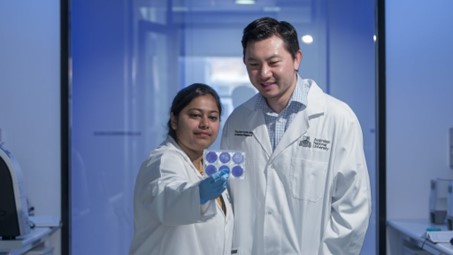Research supports new treatment for food poisoning
Food poisoning is estimated to affect more than 4 million Australians every year.
This results in more than 31,000 hospitalisations, over 80 deaths, and one million visits to doctors on average each year – costing the economy $1.25 billion.
Researchers at the Australian National University are studying a bacterium called ‘Bacillus cereus’, which is responsible for producing toxins that cause food poisoning symptoms.
They are hopeful this will lead to the development of new drugs that help restrict the spread of infection, complement existing antibiotics, and support successful treatment of other lethal types of bacterial infections.
This research is supported by Phenomics Australia and Therapeutic Innovation Australia through the Department of Education’s National Collaborative Research Infrastructure Strategy (NCRIS).
NCRIS supports Australian researchers with access to the tools, equipment, data, and services they need for world-class research.
Learn more about the role of research infrastructure in supporting healthy communities at the International Conference on Research Infrastructures in Brisbane on 3-5 December. Sessions will include discussions about ‘How RI is supporting sustainable agriculture, nutrition and development’.

Prof Si Ming Man (right) and Dr Anukriti Mathur (left). Image credit: Lannon Harley/ANU
We acknowledge the Traditional Owners of the lands and waters throughout Australia, and pay respect to the Elders past, present and emerging. We recognise the importance of connection to culture, land, kinship and community to the health and wellbeing of Aboriginal & Torres Strait Islander families. We acknowledge the cultural practices and traditions still carried out today and being passed down to future generations.


